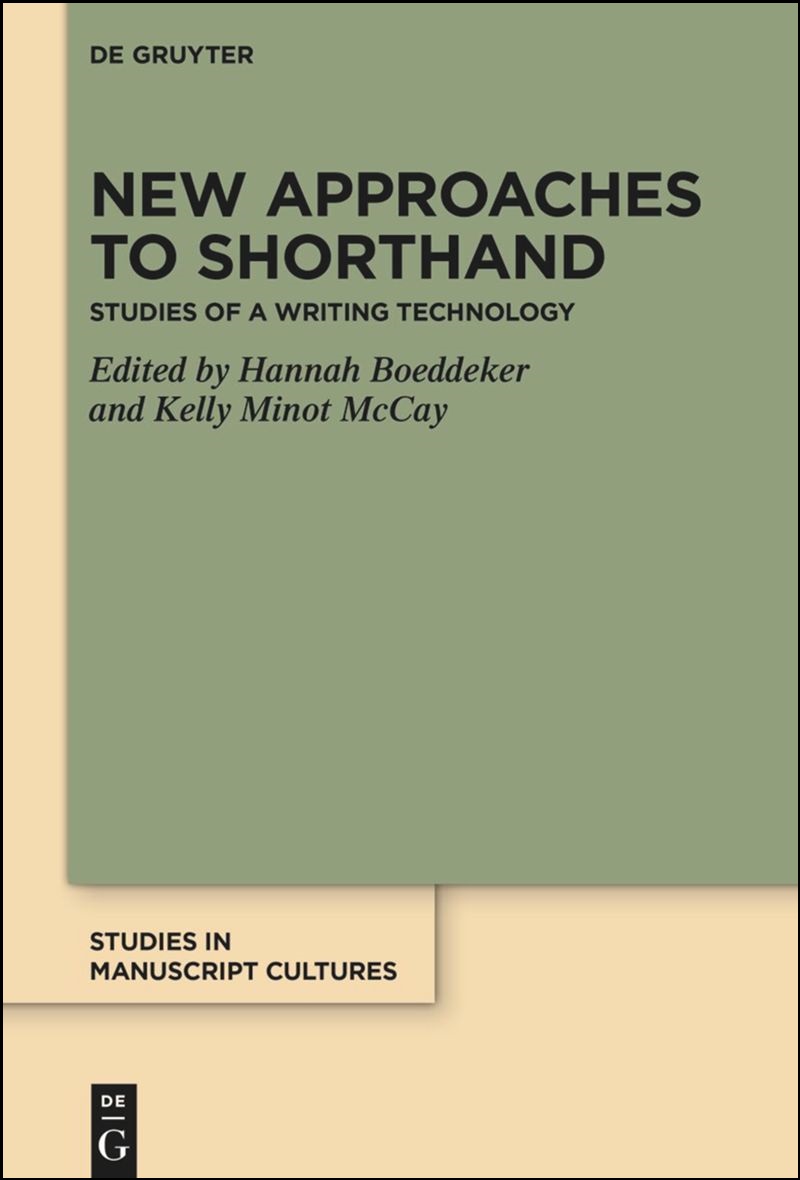SMC 41

New Approaches to Shorthand: Studies of a Writing Technology
Edited by Hannah Boeddeker and Kelly Minot McCay
Variously identified as an art, a technology, and a professional prerequisite, forms of shorthand have been in use from Antiquity to the modern day. Far from a niche corner in manuscript studies, shorthand represents an almost global phenomenon that has touched upon many aspects of everyday life and of scholarship. Due to its immediate illegibility, however, and the daunting task of decipherment, shorthand has long been neglected as a research object in its own right. The immense quantity of extant and unread shorthand manuscripts has been downplayed, as has the technology’s place in cultures of learning, religious devotion, court practice, parliamentary procedure, authorial composition, corporate life, public and private writing, and the academy. As the first ever peer-reviewed volume on the subject, this book presents a much-needed introduction to shorthand, its history, and its disparate historiography, alongside eight contributions by shorthand specialists that showcase some of the many lines of inquiry that shorthand inspires across a range of disciplinary and methodological perspectives. For readers with a vested interest in shorthand, this volume provides a range of approaches to shorthand in the Latin West, from the Middle Ages to the nineteenth century, upon which to orient, substantiate, and inform their own work. For general readers, this publication invites scholars to consider ways in which historically overlooked or underestimated forms of writing facilitated a variety of writing cultures in different contexts, periods, and languages.
FrontmatterI
ContentsV
An Introduction to Shorthand and its Study
1Hannah Boeddeker and Kelly Minot McCay
Tironian Notes and Legal Practice: The Use of Shorthand Writing in Early Medieval Legal Culture
49Christoph Walther
Writing the History of the Tironian Notes in the Sixteenth Century: Johannes Trithemius and Roman Shorthand
79Maximilian Gamer
The Use of Shorthand by Women and Girls in Early Modern England101
Timothy Underhill
The Three Codes of Adonijah Bidwell (1716–1784)133
David M. Powers
Shorthand and the Informed Public in Early American Politics157
Theodore R. Delwiche
Religion and Literacy, Parliaments and Business: Shorthand Writing in Great Britain and France, from the Sixteenth to the Nineteenth Century179
Delphine Gardey
The Romantic Melodic Code: What Stenography Tells Us About Mid-Nineteenth-Century Music211
Alfred W. Cramer
Decoding Dickens: Social Stenography and the ‘Tavistock’ Letter243
Hugo Bowles and Claire Wood
Contributors275
General Index277
